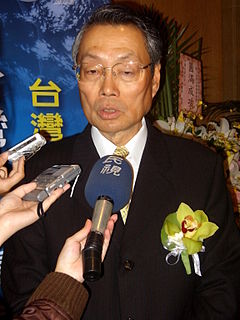A Quote by Bruce Tulgan
We are living through the most profound changes in the economy since the Industrial Revolution. Technology, globalization, and the accelerating pace of change have yielded chaotic markets, fierce competition, and unpredictable staff requirements.
Related Quotes
Masterpieces of art possess immense potential to advance a worldview that could help assuage the societal terrors posed by globalization, the most thoroughgoing socioeconomic upheaval since the Industrial Revolution, which has set off a pandemic of retrogressive nationalism, regional separatism, and religious extremism.
70 to 80 percent of country economy is controlled by the Bolivian state, and the other percentage by the private sector. We admit that it's legal, constitutional, that the private sector is entitled to its own economy, but to ensure these profound changes that clearly this government is promoting, including profound changes in the food industry, what we are doing is an important step.
Because I had visited Silicon Valley, I recognized the microprocessor was going to lead the second industrial revolution. We Chinese could not miss that opportunity again - we missed the first industrial revolution already. We put our effort into trying to bring this new technology from the United States to Taiwan. That was the begining of Acer.
The single most significant change has been the globalization of labor markets. Product markets - trade in goods - have been globalizing for years. But now, with the reduction in communication expenses and the building of all sorts of IT infrastructure, essentially any job can be done almost anywhere.
To change our national economic story from one of financial speculation to one of future growth, we need a third industrial revolution: a green revolution. It will transform our economy as surely as the shift from iron to steel, from steam to oil. It will lead us toward a low-carbon future, with cleaner energy and greener growth. With an economy that is built to last - on more sustainable, more stable foundations






































